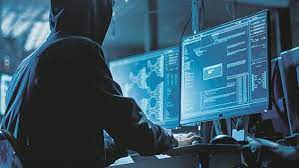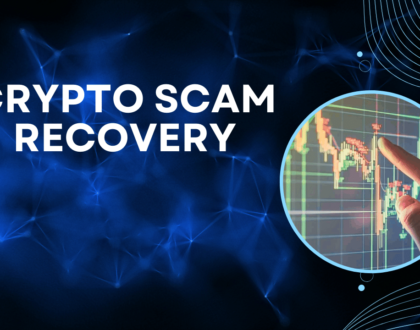
Cyber Explorers
Unveiling the World of Cyber Explorers: Navigating the Digital Frontier
Cyber Explorers: In the steadily developing virtual age, the expression “Digital Pioneers” has arisen as a characterizing idea for those exploring the huge and multifaceted overall of online protection. This article digs deeply into the substance of the digital investigation, perusing its importance, the jobs and obligations of digital wayfarers, and the fate of this pivotal subject.
What is a Cyber Explorer?
A Cyber Explorer is a professional or fanatic who actively investigates and analyzes several aspects of cybersecurity. Their task is to discover vulnerabilities, identify threats, and apprehend emerging technology. These people play a vital role in maintaining the security and trustworthiness of computerized structures, with the asset of investigating new dangers and creating present-day replies.
The Roles and Responsibilities of Cyber Explorers
Cyber explorers address diverse roles and obligations, each essential to safeguarding digital environments:
1. Threat Intelligence Gathering
One of the number one duties of a cyber explorer is to collect and analyze chance intelligence. This includes:
- Checking Digital Dangers: Watching out for rising dangers and assault vectors.
- Examining Malware: Analyzing malware tests to perceive their capacity and impact.
- Following Danger Entertainers: Recognizing and profiling people or partnerships associated with cybercrime.
2. Vulnerability Assessment
Cyber explorers are tasked with assessing and figuring out vulnerabilities in systems. Their obligations encompass:
- Conducting Penetration Tests: Simulating assaults to evaluate machine defenses.
- I was scanning for weaknesses, such as using equipment to locate software programs and hardware safety flaws.
- Reporting Findings: Document vulnerabilities and recommend remediation strategies.
3. Security Research and Development
Cyber explorers make contributions to the development of the latest safety generation and practices:
- Innovating Security Solutions: Designing systems and systems to deal with emerging threats.
- Growing Prescribed procedures: Laying out proposals for getting designs and data.
- Teaming up with Industry Specialists: Imparting experiences and procedures to exceptional specialists.
4. Incident Response and Management
In the occasion of a safety breach, cyber explorers play a vital function in managing and mitigating the incident:
- Responding to Incidents: Quickly addressing and containing protection breaches.
- Conducting Forensic Analysis: Investigating the ideal cause of incidents.
- Implementing Recovery Plans: Restoring affected systems and stopping destiny breaches.
Essential Skills Required for Cyber Explorers
To excel in the area of cyber exploration, human beings have to own pretty several specialized abilities:
1. Technical Expertise
- Proficiency in Programming: Knowledge of Python, C++, and Java.
- Understanding of Networks: Familiarity with networking protocols and technology.
- Expertise in security tools: I have experience with systems like Wireshark, Nmap, and Metasploit.
2. Analytical Skills
- Critical Thinking: Ability to investigate complicated data and understand styles.
- Problem-Solving: Developing cutting-edge solutions to safety-demanding situations.
- Attention to Detail: Ensuring thorough analysis and accurate findings.
3. Communication Skills
- Reporting: Documenting findings and pointers.
- Collaboration: Working correctly with other security specialists and stakeholders.
- Education: Sharing information and training others on protection practices.
The Future of Cyber Exploration
As generation continues to strengthen, the sector of cyber exploration is poised for massive adjustments:
1. Emerging Threats
Cyber explorers will face new challenges as attackers develop extra state-of-the-art techniques. This consists of:
- Advanced Persistent Threats (APTs): Long-term, focused assaults designed to stay undetected.
- Artificial Intelligence (AI) in Cybercrime: The use of AI to automate and beautify cyberattacks.
2. Evolving Technologies
The upward push of the latest technologies will shape the future of cybersecurity:
- Quantum Computing: Potential threats and opportunities in cryptography and facts safety.
- Blockchain: Innovations in securing transactions and verifying identities.
3. Increased Collaboration
The need for collaboration amongst cyber explorers, agencies, and governments will expand:
- Information Sharing: Exchanging hazard intelligence to reinforce defenses.
- Global Partnerships: Working together to cope with international cybersecurity troubles.
Conclusion
In short, cyber explorers are at the vanguard of the war to shield virtual landscapes from ever-evolving threats. Their data, determination, and progressive procedures are critical to maintaining the security and integrity of our virtual international. As we appear to look to the future, the position of cyber explorers will remain critical in navigating the complexities of cybersecurity and safeguarding our digital futures.
Frequently Asked Questions about Cybersecurity
1. What is a Cyber Explorer?
A cyber explorer is a character who investigates and analyzes cybersecurity threats, vulnerabilities, and generation. They are accountable for figuring out capacity protection dangers, expertise growing threats, and developing strategies to defend digital structures. Their artwork entails amassing hazard intelligence, accomplishing vulnerability checks, and innovating safety solutions to guard records and systems.
2. Is Cyber Security Real?
Yes, cybersecurity is very real. It includes a giant form of practice and era designed to guard computer systems, networks, and statistics from unauthorized entry to attacks and damage. Cybersecurity is essential for protecting personal facts, financial transactions, and sensitive statistics from cyber threats and criminal activities.
3. What is a Real Life Example of Cyber Security?
A real-life instance of cybersecurity in motion is using multi-factor authentication (MFA) to protect online money owed. MFA calls for customers to offer or greater verification strategies—which include a password and a code sent to their cell tool—before granting access. This adds a further layer of safety, making it more difficult for unauthorized people to access bills.



